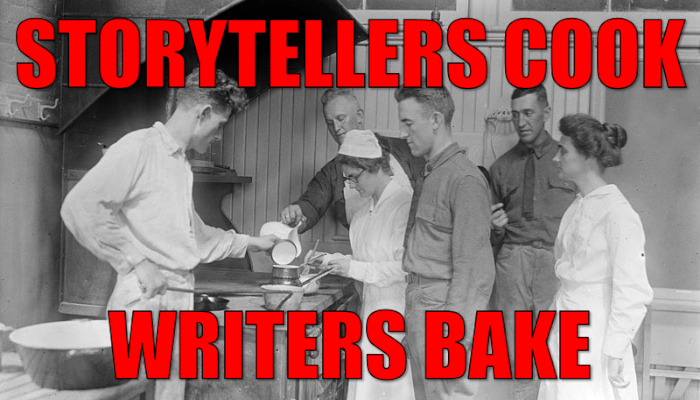
Six UC Irvine journalism professors shared their ideas about writing and storytelling at the Center for Storytelling’s inaugural event. At one point, professor Miles Corwin said, “I never met a great storyteller that wasn’t a big reader.” Each panel member then supported his statement by telling anecdotal backstories of their love for reading.
But something about Professor Corwin’s statement bothered me. My storytelling interests began at the knee of a my grandfather–a Boston cab driver with a sixth grade education. I can’t recall a single instance of him reading a book. A newspaper, maybe. A book? Never.
I wrestled with the notion for a couple of weeks before finding an answer in a fifty-year-old memory. “Do you like to cook?” I asked my grandmother as she pulled something wonderful out of the kitchen oven.
She looked at me quizzically. “I’m not a cook. I’m a baker,” she said, before explaining how most people are one or the other, but rarely both. My grade school brain couldn’t comprehend the difference. To me, cooking was the act of applying heat to food, but she told me that cooks use intuition while bakers use knowledge. Bakers rely on details and when they get it right, amazing cakes, cookies, and croissants emerged from their ovens. When they get it wrong, breads don’t rise, cookies crumble, and brownies become bricks.
That memory convinced me. Storytellers are cooks and writers are bakers.
Storytellers cook because they lean on gut instincts to guide their actions. Writers bake because it take years to master the intricacies of grammar, word choice, and building large vocabularies. Writers love language while storytellers don’t even need it, as proven to me once by Park Howell who told a story using only caveman grunts.
“Oh?”
“Uh-oh.”
“Ah!”
If you just laughed it’s because you get it. Park’s story has nothing to do with language and everything to do with the human condition.
Storytellers and writers speak to different parts of the human brain. Storytellers speak to our instinctive systems while writers speak to our cognitive ones. Storytellers communicate with mechanisms that execute below the level of consciousness while writers communicate with the systems above it. Storytellers trigger the fast/reactive parts of the brain while writers trigger the slow/cognitive ones. Storytellers study the human condition, while writers spend years learning ways to represent it linguistically.
So, while I disagree with Professor Corwin about the connection between storytellers and reading, I do think that we agree on something more important. The best communicators are double-threats. They combine storytelling with writing to speak to both parts of the human brain: the instinctive and emotional part AND the cognitive and logical part.
Photo Credit: Bain News Service, Publisher. Cooking, Pratt Institute, Misses Kierstead & Hanks. , 1917. Photograph. https://www.loc.gov/item/2014705268/.